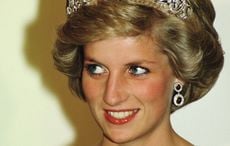A former Royal Air Force (RAF) pilot shot down by the IRA during The Troubles has expressed his desire to meet with his attackers in a bid to heal the past.
Mike Johnston was a helicopter pilot in the RAF during the 1970s, struck by an RPG missile when flying in Co. Armagh, Northern Ireland.
The former RAF man, who later flew nuclear bombers, told BBC Radio Ulster that he wishes to meet with the IRA men who fired at his helicopter four decades ago and he has “the greatest respect” for their beliefs and professionalism.
Johnston, who was 25 at the time, escaped injury when an IRA RPG 7 rocket launcher attack grounded his helicopter while he transported members of the Parachute Regiment at Crossmaglen military base in Co. Armagh. He initially thought they had been struck with engine failure before further shots were fired.
"It was when the bullets started hitting the tail of the helicopter and making their way down towards the main cabin that we realised that we were under attack," he explained to the Nolan Show.
The military base, closed in 2006, was close to a GAA pitch and attempts were made to bring the helicopter down several times as they flew over.
"They fired three or four times, not more, and as we were running across the football pitch we were hit by an RPG 7 and automatic fire,” he told the Belfast Telegraph.
"We lost the starboard engine and there was a lot of bullet damage to the aeroplane but there were no real injuries."
Following this, a "minor gun battle that ensued, which lasted for 10 to 15 minutes".
Despite evading injury, Johnston admits that the trauma of the attack stayed with him for many years and he still suffers from post-traumatic stress disorder.
"I certainly know that if someone slams a door behind me I'm probably more reactionary to it than the majority of people,” he confirmed.
As he reached his 60s, he decided he wished to meet with the men who attempted to shoot him down, and to attempt to understand why they wanted to kill him.
Johnston wrote a letter to Northern Ireland Deputy First Minister, Sinn Féin’s Martin McGuinness for assistance, and he and his wife traveled to Northern Ireland to meet with the Deputy First Minister. Despite an interesting conversation, McGuinness, who admits to having been a member of the IRA until 1974, told the former pilot he did not have the connections to find out who carried out the attack.
"I had already been back actually [to Northern Ireland], more or less as a tourist,” Johnston said.
“Then I wrote to Martin [McGuinness] to say, 'Look I have no remaining animosity towards these guys. I was doing my job, they were obviously doing what they thought was right at the time. I'd like to have a chat and see what they thought of the whole thing'."
"Along with my wife, I visited Stormont, we had a very interesting and long conversation with Martin McGuinness, whom I found to be very honest and sincere."
Johnston also met with a former IRA man from south Armagh, although not a man involved in the incident in question, in a meeting set up by McGuinness.
Referring to him as “Mr. Moore,” he described the meeting as a “very rewarding experience” stating that, "I think my conversation with him was very honest and very understanding from both points of view."
As for those he faced off with in the 1970s, Johnston said that he would still like to meet with the IRA men involved but understands that as they have never faced prosecution for their actions and a meeting may put them at risk.
"For the individuals that honestly believed that what they were doing was right I have the greatest respect for them," he said.
He also believes the experience in meeting with the former IRA man has given him a greater understanding of the situation in South Armagh in the 70s.
"It brought into context the big difference between what was going on in the rest of the province and what was going on in south Armagh,” he told the Telegraph.
"Further north we were there in aid to the civil power but in south Armagh it was more the IRA against the military."
"We were trying to stop smuggling and arms coming across the border. That effectively put that area of south Armagh into an open prison camp for local people."
Johnston left the RAF in 1988 and still teaches commercial pilots using simulators.
“I don't think any loss of life was worth it at all, he concluded.
“I'm a military man and I did what my country asked me to do. That included sitting in Germany with nuclear weapons under my aircraft prepared to deliver it if necessary.
"I don't think that loss of life would be justified either."




Comments